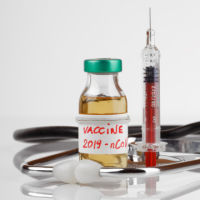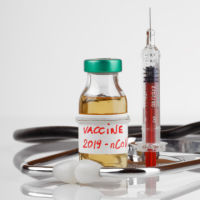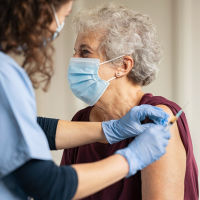Vaccine delays have increased in recent years not only because of access problems, but also due to trust issues resulting in people's refusals to get vaccinated.
You might also like:Immunisation During COVID-19: Recommendations and Opinions
New research published in The Lancet (de Figueiredo et al. 2020) has found that, between 2015 and 2019, vaccine confidence remained low across Europe compared with other continents. Meanwhile, trust in the importance, effectiveness and safety of vaccines plummeted in Afghanistan, Indonesia, Pakistan, the Philippines and South Korea during the same period.
"Confidence in the importance of vaccines (rather than in their safety or effectiveness) had the strongest univariate association with vaccine uptake compared with other determinants considered," according to the study led by experts with the Vaccine Confidence Project (VCP).
Launched in 2010, the VCP provides a systematic approach of monitoring public confidence in immunisation programmes across the globe. The group continuously researches the causes and trends impacting vaccine confidence at national and global levels. Their findings help to inform policy and trust-building activities for improving immunisation programmes.
In this latest study, the VCP was able to estimate and map vaccine confidence for 149 countries from 2015 to 2019. The study used new and existing VCI surveys comprising nearly 300,000 individual responses from those countries. Bayesian tools enabled study authors to determine the link between vaccine uptake and socioeconomic and non-socioeconomic determinants (e.g. confidence in vaccine, trust in health system) in each country.
Other key findings of the study include:
- Between 2018 and 2019, confidence improved in some EU nations, including Finland, France, Ireland and Italy, with recent losses detected in Poland.
- Japan is among the countries with the lowest vaccine confidence in the world, and this might be linked to the human papillomavirus (HPV) vaccine safety scares that started in 2013.
- When a link was found between individuals' religious beliefs and uptake, findings indicated that minority religious groups tended to have lower probabilities of uptake.
- Being male or having fewer years of education were associated with decreased chances of uptake.
- Positive information-seeking behaviours and trusting healthcare workers more than other sources, such as one’s social circle for medical and health advice, correlated with increased chances of uptake.
This is the largest study of global vaccine confidence to date, according to the VCP authors, and its findings underscore the importance of regular monitoring to detect emerging trends. In the context of new and emerging disease outbreaks, such as the COVID-19 pandemic, having a common metric of confidence and a baseline for comparison is key to understanding these changing trends over time, which can serve as an early warning system to prompt interventions for optimising uptake of new life-saving vaccines, the VCI authors point out.
Source: The Lancet
Image credit: Manit Chaidee via iStock
References:
de Figueiredo A et al. (2020) Mapping global trends in vaccine confidence and investigating barriers to vaccine uptake: a large-scale retrospective temporal modelling study. The Lancet. Published online 10 September. DOI:https://doi.org/10.1016/S0140-6736(20)31558-0



























